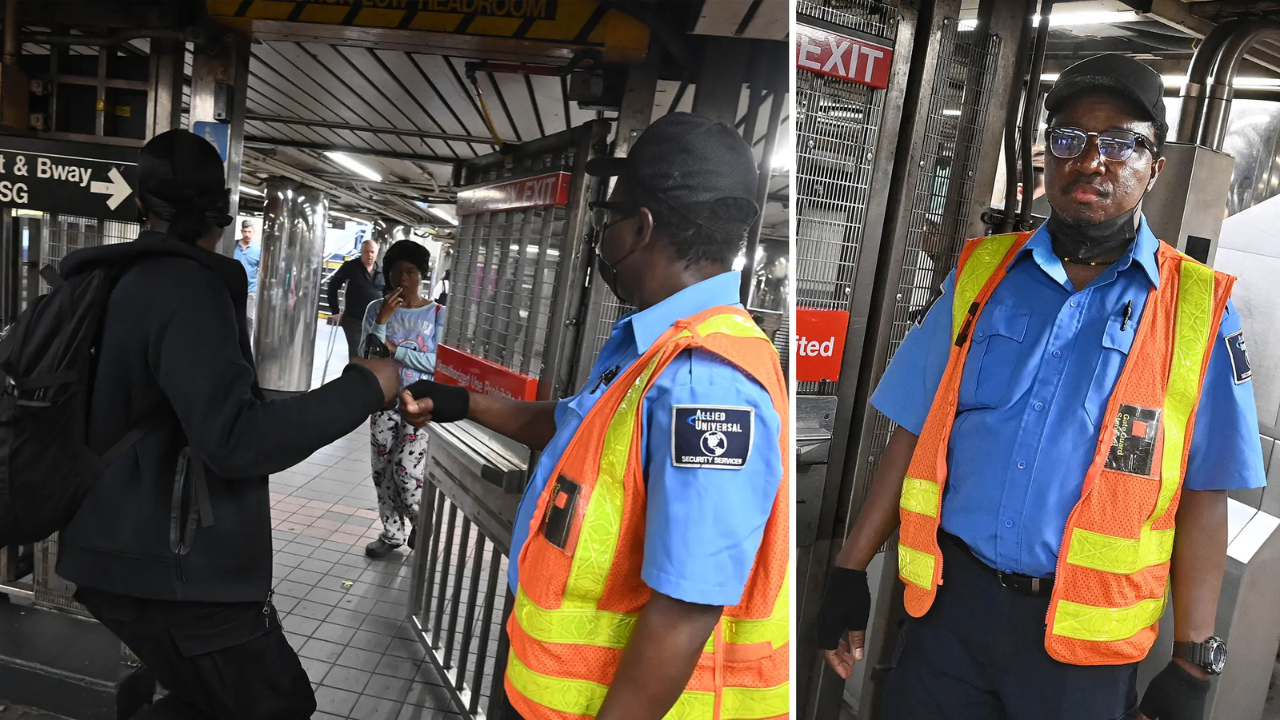New York City is spending big on private security to stop fare evasion in its subways, but recent reports show some of these guards are doing the opposite of what they were hired for.
Instead of preventing people from skipping fares, they’re letting them in—and some are even sleeping while on duty.
These guards, paid around $100 per hour, are part of the MTA’s effort to improve subway safety and reduce revenue loss from fare beaters. However, videos and eyewitness reports are now revealing a different story.
In some cases, guards are seen holding subway doors open so that people can enter without paying. In other clips, they are simply standing aside while people jump turnstiles or slip through emergency gates.
Some guards have also been spotted napping on benches, leaning against walls with their eyes closed, or looking at their phones during their entire shifts.
Riders and critics are raising serious questions: Why are these guards being paid so much if they’re not doing their job? And how is this helping the city stop the estimated $700 million in annual losses from fare evasion?
The private guards were brought in by a company hired by the MTA to support NYPD efforts and discourage non-paying riders. The guards wear blue vests with the label “Security” and are placed mainly at high-fare-evasion stations.
But unlike police officers, they don’t have the power to arrest or physically stop someone. Their role is to deter, report, and observe.
However, what’s now being observed is poor performance. Instead of reducing fare evasion, many say the guards are making no difference—or worse, encouraging it by turning a blind eye.
Riders have started sharing footage on social media showing guards ignoring people walking right through without paying.
In one video, a guard even keeps the exit gate open, allowing a group of people to enter freely. In another, a guard leans back against a wall, appearing to sleep, while dozens walk past him without swiping a MetroCard or using OMNY.
People who use the subway every day are frustrated. Many of them follow the rules, pay the fare, and expect the same from others.
But when they see guards doing nothing, or even helping fare beaters, they feel cheated. “Why am I paying every day when others are getting a free ride and the guards don’t care?” one commuter asked.
The issue has caught the attention of city officials and transit watchdog groups. Some say the MTA needs to re-evaluate how much it’s spending on private security if there’s no accountability. Others say the whole strategy needs to change.
Spending hundreds of dollars per shift on guards who can’t even issue fines or tickets doesn’t make sense to many critics.
According to the MTA, these guards are meant to support a broader security effort, including police presence and technological upgrades like cameras and sensors. The agency also says they’re monitoring the guard program and reviewing footage where misconduct is reported.
Still, many feel that more needs to be done, and fast. The MTA is already struggling financially, and fare evasion adds to the problem.
At a time when riders are being asked to pay more, and service delays continue, the idea of high-paid guards doing little or nothing has left a bad taste for many.
Some suggest more training, better oversight, or hiring more NYPD officers instead. Others think the answer lies in redesigning subway gates to make it harder to cheat the system. Whatever the solution, it’s clear that what’s happening now is not working.
New York City’s subways are vital for millions. Riders want safety, fairness, and accountability. But with sleepy guards, open gates, and money being wasted, it feels like the system is failing them from all sides.
Disclaimer- Our team has thoroughly fact-checked this article to ensure its accuracy and maintain its credibility. We are committed to providing honest and reliable content for our readers.






